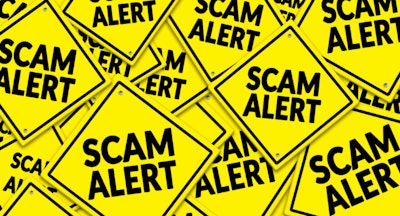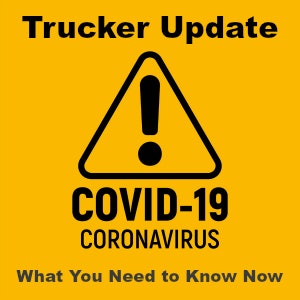
Did you hear about the hoax that blowing a hairdryer up your nose can keep away the coronavirus? Or about a couple ingesting a fish tank cleaner with fatal results for one of them? That’s only a sample of the widespread hoaxes, scams and myths spreading through social media.

And remember, if your cousin’s neighbor “has a friend who works at the CDC,” the info is probably not true. Here we go…
Myth: Spraying rubbing alcohol or bleach on your body, or drinking it, can prevent or cure COVID-19.
Truth: The WHO says putting bleach or rubbing alcohol on your body can harm your mucous membranes and drinking either can cause all kinds of harmful things, including death. Please don’t do this.
Myth: Eating garlic or drinking water steeped with garlic prevents or cures COVID-19.
Truth: While garlic is a healthy food with antimicrobial properties, no evidence exists that it protects you from the coronavirus. Although, it may encourage social distancing.
Myth: Rinsing your nose with saline can help prevent infection with the new coronavirus disease.
Truth: It may help recover from the common cold, but it doesn’t prevent respiratory infections.
Myth: Taking a hot bath can prevent you from contracting COVID-19.
Truth: Not true, and if the water is too hot, you can get burned.
Myth: Sipping water every 15 minutes will prevent the coronavirus from entering your windpipe and lungs.
Truth: While the virus does enter through your nose or mouth, water won’t wash it away. Drinking water is good for your health, but it won’t keep the virus away.
Myth: Gargling with salt water or vinegar will kill the coronavirus. The claim is that the virus stays in your throat for four days before it goes to your lungs and the salt or vinegar can eliminate it before it leaves the throat.
Truth: Sure, gargling with warm salt water and vinegar can relieve cold symptoms, but there is no evidence that the coronavirus stays in your throat for four days or that the remedy can keep it from going to the lungs.
Myth: Large doses of Vitamin C can shorten or cure COVID-19.
Truth: While it’s not a cure and many studies don’t even think it’s a factor in reducing the frequency of the common cold, there are slight improvements in immune function with Vitamin C. So this one won’t hurt you, unless you take excessive doses, but it won’t help you as much as washing hands and not touching your face.
Myth: Bananas will prevent you from getting COVID-19.
Truth: A Facebook video suggests that consuming bananas can ward off the coronavirus. While bananas are a good source of fiber, dietary potassium and vitamin B6, they don’t prevent or ward off coronavirus. Wash your hands!
Myth: Colloidal silver can treat the coronavirus disease.
Truth: U.S. televangelist Jim Bakker was ordered by the state of Missouri to stop promoting colloidal silver on his show. He violated Missouri law by “falsely promising that Silver Solution can cure the coronavirus disease.” So, no. Don’t drink any product that claims to cure COVID-19.
Myth: Cow poop can cure COVID-19.
Truth: No. This myth originated in India where a legislator claimed that cow urine and dung is helpful against the spread of the disease. Eating animal feces is not a good idea under any circumstances.
—
While the health hoaxes continue to spread and mutate, just keep in mind that there’s only a few real ways to slow the spread of the COVID-19 coronavirus: Wash your hands, don’t touch your face and socially distance yourself from others.
As far as essential oils, vitamins, minerals, bleach and any other cures, save your money and buy soap.
Here are few other ways you may be vulnerable to scams while this disease runs rampant.
Phone scams: Beware of callers offering test kits, HVAC cleaning, diabetic test kits and any other medical devices or testing.
Provider scams: Don’t fall for calls or emails from doctors offering medical advice or tests.
Supply scams: Online stores offering masks, gloves and hand sanitizers when, in fact, they are out of stock or never carried them.
Medicare scams: Watch out for callers offering fake tests for Medicare recipients, free tests or health insurance pitches.
Where to report scams: Attorney General William Barr is urging the public to report suspected fraud schemes related to the coronavirus by calling the National Center for Disaster Fraud hotline (1-866-720-5721) or by emailing [email protected].











